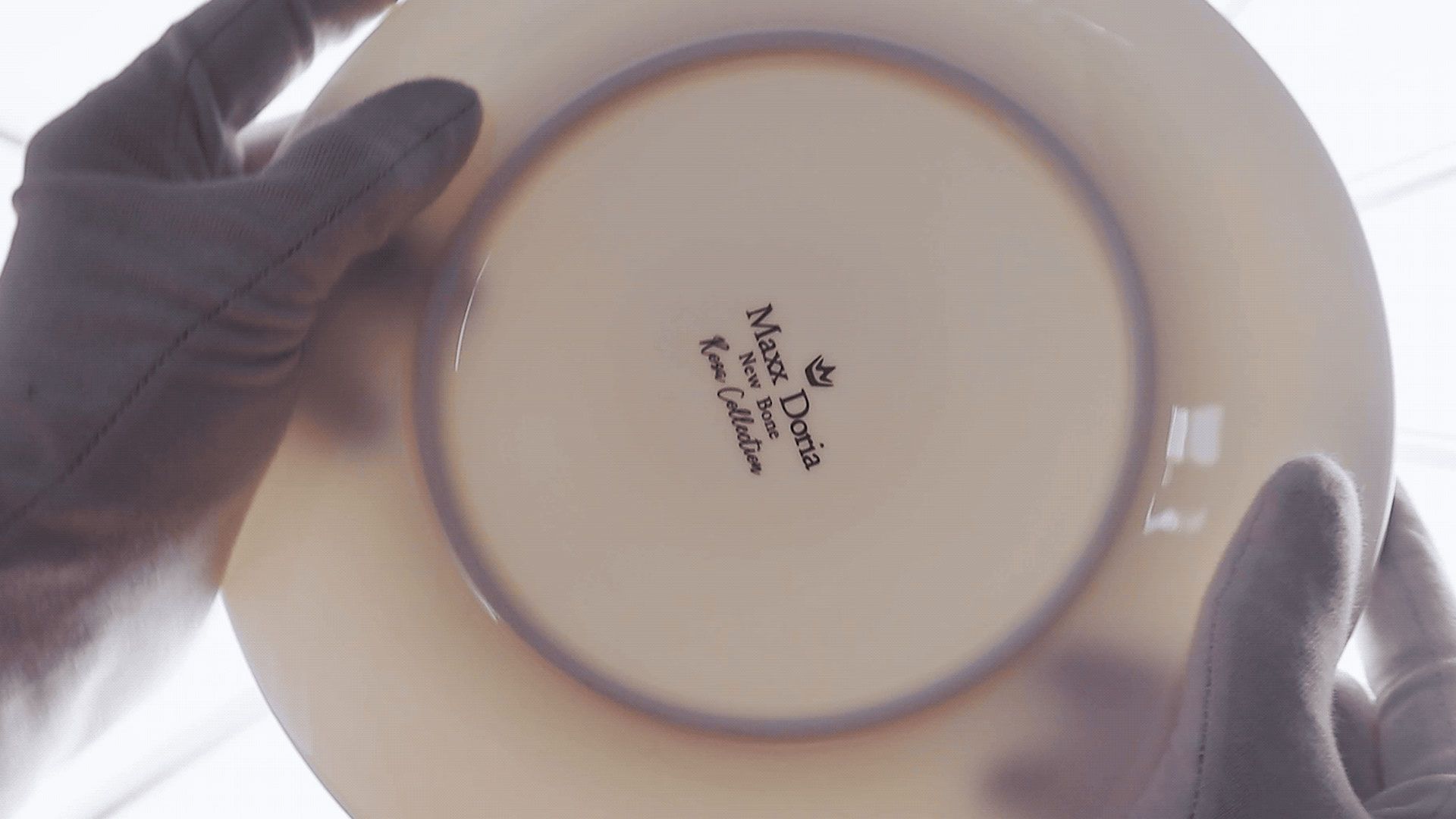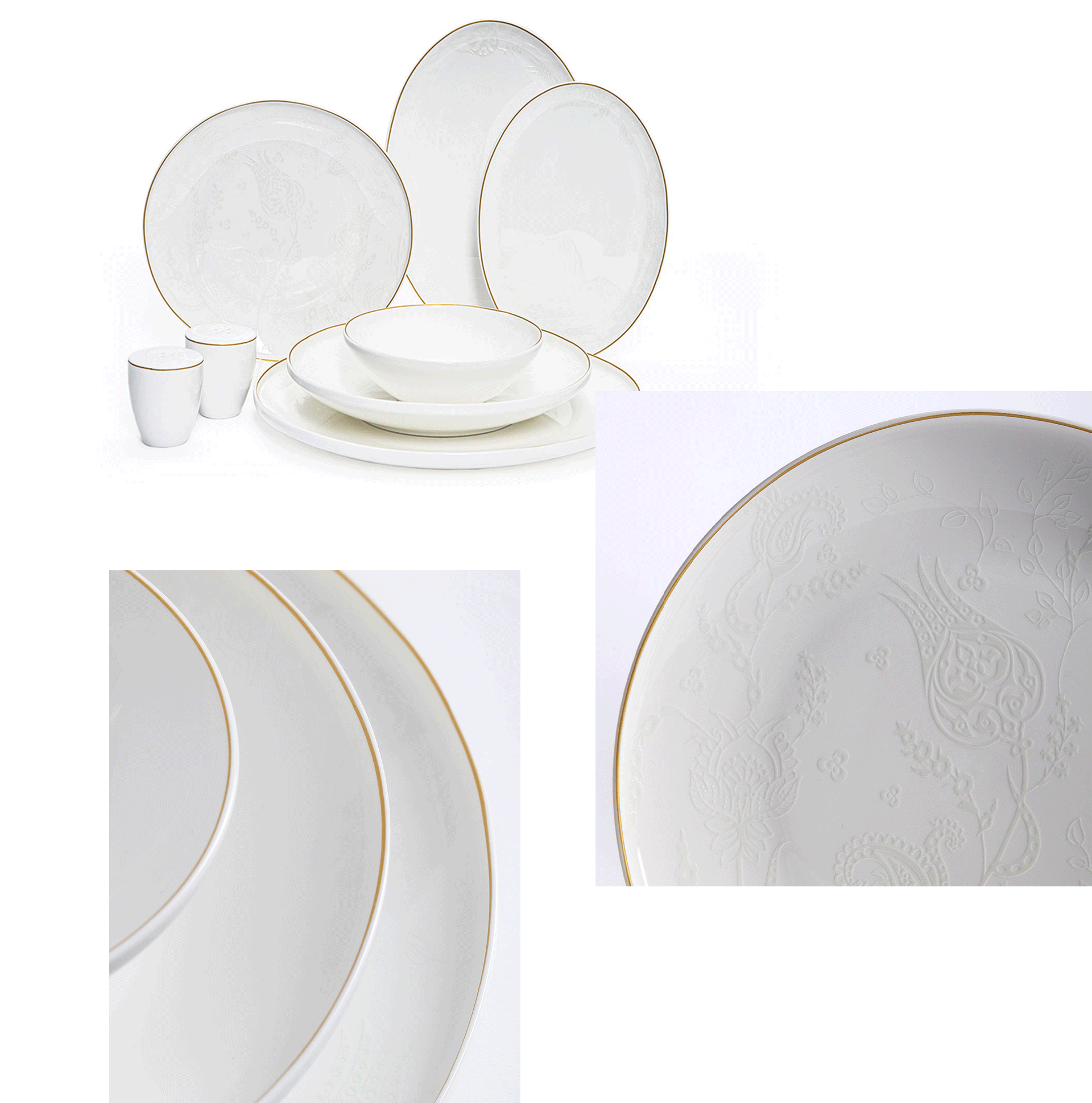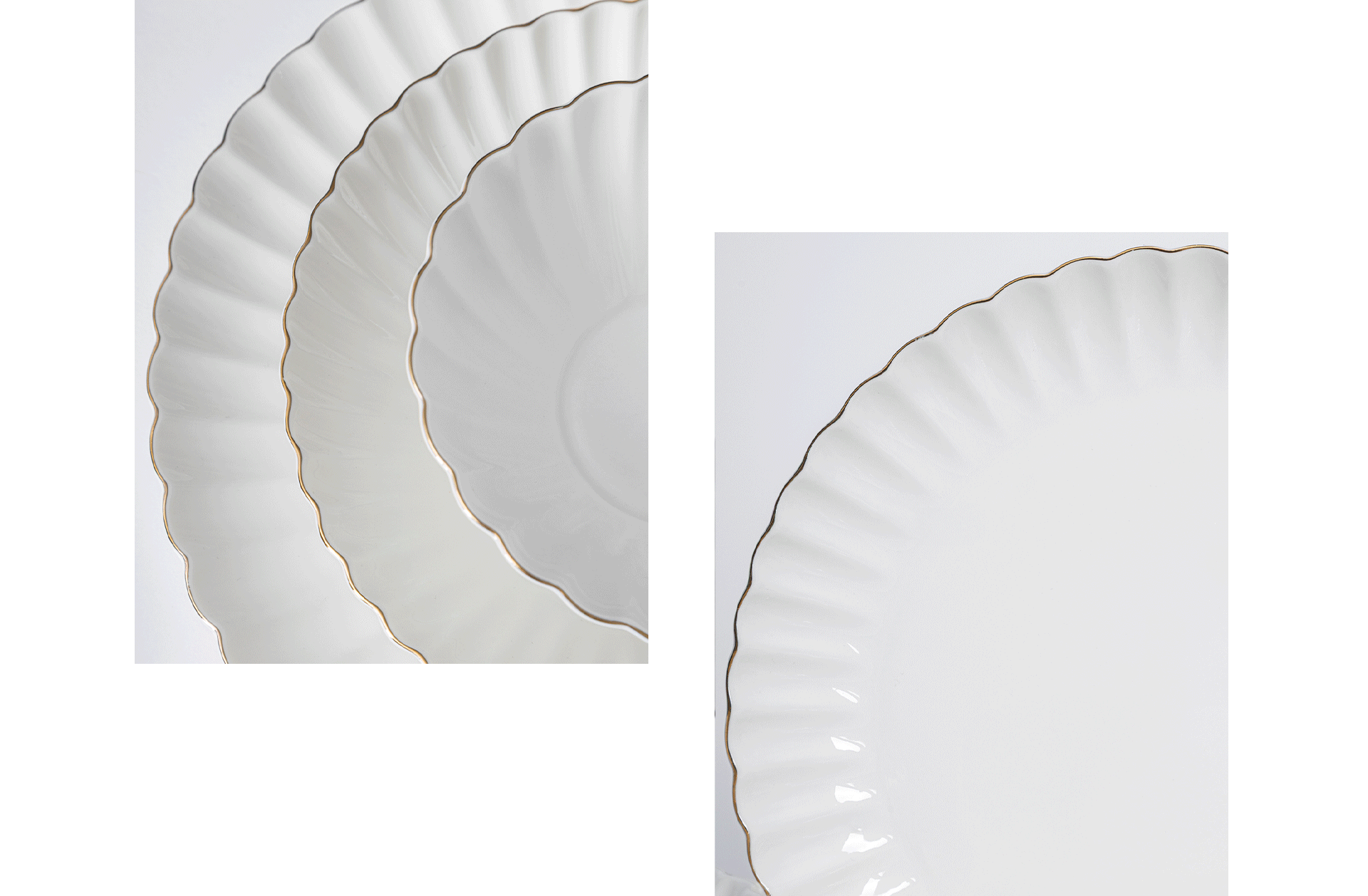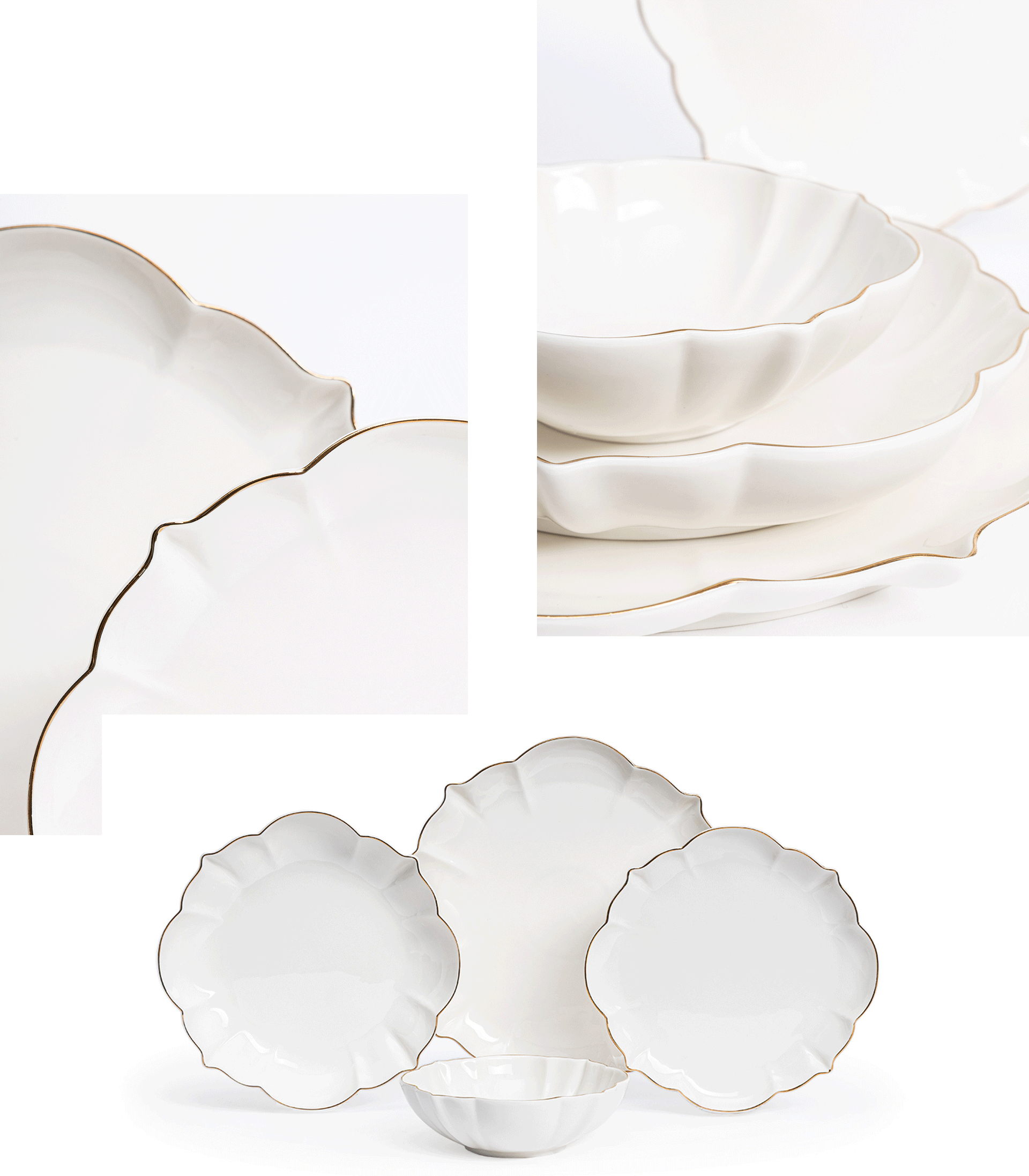

Bone China Without Bone Ash: Halal and Ethical
It may come as a surprise to learn that your most elegant porcelain dinnerware actually contains animal bone. This traditional type of porcelain, known as bone china, contains 40-60% animal bone ash in its composition. This bone ash gives the porcelain both superior durability and its delicate, lightweight structure. However, the presence of animal-derived ingredients may be concerning for vegans, vegetarians, and those with halal sensitivities. Fortunately, there is now a new generation of porcelain alternatives produced using entirely natural, vegan, and halal processes—free from bone ash.
Maxx Doria, which uses Bone China—where aesthetics and craftsmanship meet—on a table illuminated by the most elegant tones of light, reinterprets this rare material with the subtleties of modern life and brings it to distinguished tables. In this article, we will explain what Bone China porcelain is, how the bone ash-free version differs from traditional Bone China, the halal and ethical production process, and Maxx Doria's sensitivity to this issue.
What are the characteristics of traditional Bone China?
Bone China is the product of a centuries-old tradition of craftsmanship. Despite its delicate structure, it is known for its extraordinary durability and ability to filter light, creating a vibrant glow on the table. Its history dates back to 18th-century England, where it was developed by manufacturers seeking a more durable and delicate porcelain. As the name suggests, traditional Bone China production uses ground animal bones—mostly cow bones. This bone ash, added to the porcelain clay, gives Bone China its extraordinary durability and lightness. Maxx Doria enriches this heritage with new-generation formulas that respect ethical values and meet modern expectations; the entire collection stands out with pieces that contain no bone ash.
Another striking feature of Bone China is its light transmittance; its semi-transparent structure allows it to exhibit a slight transparency under light, offering a unique brilliance and elegance. Moreover, despite being thinner and lighter than other porcelains, it is extremely resistant to impact and shocks. All these features have made Bone China one of the most popular and high-quality pieces on tables for years. 
The Difference Between New Generation Maxx Doria Bone China and Traditional Bone China
In traditional Bone China production, animal bone ash is added to porcelain to give it durability, whiteness, and translucency, while in bone ash-free porcelain, alternative raw materials are used to perform this function. For this reason, it is sometimes referred to as vegan. High-quality minerals such as kaolin (Al2O3) and quartz (SiO2) are combined using special
formulas to achieve similar strength, brightness, and translucency without bone ash.
This porcelain, which feels almost as light as a feather in your hand, retains its shape and luster even with daily use. Its transparent structure adds both a classic and modern touch to your table. While its delicacy is visually appealing, its resistance to high temperatures and impacts makes it a true lifetime investment.
In conclusion, bone ash-free Bone China is indistinguishable from traditional Bone China in terms of aesthetics and performance, and even offers better quality. The only major difference is that no animal products are used in its production, making this porcelain 100% vegan.
Halal and Ethical Production Process
Bone China porcelain without bone ash is not just a product but also the result of a halal and ethical production philosophy. While the bone ash used in traditional Bone China is primarily derived from cattle bones, the presence of animal-derived content in the product may be considered objectionable from certain religious and ethical perspectives. Bone China produced without the use of bone is fully compliant with these religious requirements, providing assurance in terms of halal. Maxx Doria's Bone China products are halal certified and follow an ethical production process. Because for Maxx Doria, Bone China is not just a tableware product, but an artistic touch that adds value to our living spaces. Each collection brings the value of craftsmanship and an innovative aesthetic to your table.
At this point, the complete exclusion of animal-derived raw materials is of great importance. Maxx Doria Bone China is the product of a production process in which no animals are exploited or harmed. In this respect, it is a cruelty-free alternative. Eliminating the industrial use of animal bones is extremely meaningful for consumers who are sensitive to animal welfare.
The production process of Maxx Doria Bone China also offers advantages in terms of hygiene and health. Since it is produced entirely from minerals and pure ingredients, this porcelain does not carry any biological residues or risks. Indeed, Bone China is known as a material that does not contain toxic substances due to its natural ingredients and is safe for contact with food.
In addition, environmental awareness is one of the main motivations behind Maxx Doria Bone China production. Reducing dependence on animal by-products also reduces indirect damage to nature. Vegan Bone China production offers an alternative that consumes less energy and resources compared to traditional methods and helps reduce the carbon footprint.
Thanks to the efficient use of natural minerals and sustainable production techniques, environmental impacts are minimized. Through the efficient use of natural minerals and sustainable production techniques, environmental impacts are minimized.
In summary, Maxx Doria Bone China, produced through halal and ethical processes, presents a hygienic and ecological product that preserves natural ingredients and prioritizes animal welfare.
 FIND A DEALER
FIND A DEALER 

